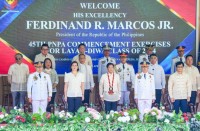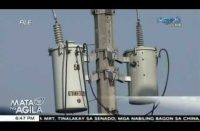(Eagle News)– The proposed Charter in the House of Representatives bans People Power and grants government the power to suppress irresponsible media, former Rep. Neri Colmenares said on Saturday.
In arguing his position, Colmenares in a statement cited changes in the 1987 constitutional provisions on where sovereignty lies and on the right to a free press and to free speech as contained in the approved Constituent Assembly House Resolution No. 9.
For the first, Colmenares said that from “Sovereignty resides in the people and all government authority emanates from them” in Article II of the existing 1987 Constitution, the provision in the proposed charter became “Sovereignty resides in the Filipino people through suffrage and all government authority, whether federal or regional, emanates from them.”
“This self-serving amendment means that in between elections sovereignty no longer resides in the people but in public officials such as the President, congressmen and senators,” he said.
He added that the standard of responsibility in the responsibility clause in the proposed charter is “not only vague.”
“…But many public officials will abuse this power and pass laws seemingly to make the press responsible but actually to suppress press freedom,” he said.
Cha-Cha railroading
In the same statement, Colmenares slammed what he said was the railroading of Charter Change.
He said the consultations done for this were not enough, as certain topics–term extensions for instance—were not discussed.
“This rush to Cha-Cha through con-ass (Constituent Assembly) is nothing more than efforts to ensure that it is passed early enough to cancel the 2019 elections and extend terms of all public officials,” he said.
“They’re not even sure which model to follow since the PDP-Laban constitution proposes a federal-parliamentary model while the pending RBH No. 8 proposes a federal-presidential model,” he added.
President Rodrigo Duterte has said there was a need to shift to federalism so the long-standing issues in Mindanao could be addressed.
But debates remain as to what mode should be used to amend the Constitution.
Several lawmakers prefer a constitutional assembly composed of members of Congress but the senators and congressmen in favor of the method are in a deadlock as to the manner of voting.
Senators in favor of con-ass noted that voting should be done separately so as not to render the Upper House–which has less numbers— irrelevant, but several congressmen insist the voting should be done jointly.







